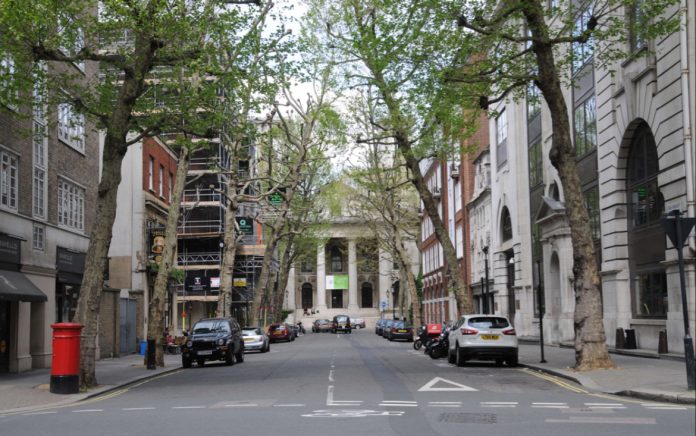Tufton Street, a relatively modest and quiet road in Westminster, London, has emerged as a significant centre of radical political influence and think-tank activity in recent years. Despite its unassuming appearance, this street is home to a cluster of organisations and entities that exert considerable impact on the UK’s political landscape and wreak carnage across the land.
Historical Background
Tufton Street, located near the heart of British political power, the Houses of Parliament, has a rich history dating back to the 17th century. Over the years, it has transformed from a residential area to a hub of political activity. Its proximity to Westminster makes it a strategic location for organisations seeking to influence lawmakers and public policy.
Notable Organisations
Tufton Street is renowned for hosting several influential think tanks and advocacy groups, many of which align with conservative and free-market ideologies.
Some of the most prominent organisations based here include:
- The Institute of Economic Affairs (IEA): Founded in 1955, the IEA is one of the UK’s oldest and most influential think tanks. It advocates for free-market policies, deregulation, and limited government intervention in the economy. The IEA has been instrumental in shaping the economic policies of various Conservative governments. It is worth remembering that any government prevents the existence of a free market. Those who advocate for both are lying to us.
- TaxPayers’ Alliance (TPA): Established in 2004, the TPA campaigns for lower taxes and greater transparency in government spending. It has been effective in influencing public discourse on taxation and government waste. Determining ‘waste’ is intelf controversial. Helping poor people is a waste, according to free marketers.
- Global Warming Policy Foundation (GWPF): A controversial organisation known for its climate change skepticism, the GWPF promotes debate on climate policies and challenges mainstream scientific consensus on global warming, with lies and falsehoods.
- Civitas: A think tank focusing on social and economic issues, Civitas advocates for policies aimed at improving education, healthcare, and social mobility through market-based solutions.
- Centre for Policy Studies (CPS): Founded by Margaret Thatcher and Keith Joseph in 1974, the CPS champions free-market policies and has played a pivotal role in shaping the ideological foundations of the Conservative Party.
🚨 Who funds you? Turns out it's Tory donors
— Peter Geoghegan @ democracyforsale.substack (@PeterKGeoghegan) June 13, 2024
Britain's incredibly influential right-wing think tanks refuse to declare their donors
But we've discovered that seven Conservative donors have pumped £6.85 million into Tufton Street since 2019
Labour’s @liambyrnemp said “these… pic.twitter.com/qbqEzZZHKd
Influence on UK Politics
The organisations based on Tufton Street have had a profound impact on UK politics. Their research, publications, and lobbying efforts influence policymakers, media narratives, and public opinion. By hosting events, publishing reports, and engaging with the media, these think tanks ensure that their ideas reach a broad audience, including key decision-makers.
For example, the IEA’s advocacy for free-market policies and deregulation has found resonance within the Conservative Party, influencing significant policy decisions. Similarly, the TPA’s campaigns against high taxation and government waste have shaped public attitudes and political debates on fiscal policy.
Controversies and Criticisms
Despite their influence, the organisations on Tufton Street have been surrounded by controversy. Critics argue that these think tanks lack transparency regarding their funding sources and are often perceived as promoting the interests of wealthy donors and corporate sponsors. The opaque nature of their financial backing has raised questions about the extent to which their policy recommendations are influenced by vested interests.
Moreover, some of these organisations, particularly the GWPF, have faced criticism for their stances on climate change. The GWPF’s skepticism of mainstream climate science has been widely condemned by environmentalists and scientists, who argue that it undermines efforts to address global warming.
Tufton Street, London, exemplifies the significant but often opaque role that think tanks and advocacy groups play in shaping political discourse and policy in the UK. While the organisations based there contribute valuable ideas and stimulate important debates, their influence also raises critical questions about transparency, accountability, and the role of money in politics. As Tufton Street continues to be a nexus of political influence, Britain will continue in a downward spiral. Lack of accountability and being run by multibillionaires for their own interests is carcinogenic and can only be destructive.
KEEP US ALIVE and join us in helping to bring reality and decency back by SUBSCRIBING to our Youtube channel: https://www.youtube.com/channel/UCQ1Ll1ylCg8U19AhNl-NoTg AND SUPPORTING US where you can: Award Winning Independent Citizen Media Needs Your Help. PLEASE SUPPORT US FOR JUST £2 A MONTH https://dorseteye.com/donate/







